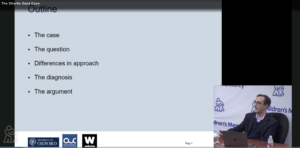Guest Post: How Should We Evaluate Deaths?
Written by: Carl Tollef Solberg, Senior Research Fellow, Bergen Centre for Ethics and Priority Setting (BCEPS), University of Bergen.
Espen Gamlund, Professor of Philosophy, Department of Philosophy, University of Bergen.
In 2015, there were 56.4 million deaths worldwide (WHO 2017).[i] Most people would say that the majority of these deaths were bad. If this is the case, why is it so, and are these deaths equally bad?
Death is something we mourn or fear as the worst thing that could happen—whether the deaths of close ones, the deaths of strangers in reported accidents or tragedies, or our own. And yet, being dead is not something we will ever live to experience. This simple truth raises a host of challenging philosophical questions about the negativity surrounding our sense of death, and how and for whom exactly it is harmful. The question of whether death is bad has occupied philosophers for centuries, and the debate emerging in the philosophical literature is referred to as the “badness of death.” Are deaths primarily negative for the survivors, or does death also affect the decedent? What are the differences between death in fetal life, just after birth, or in adolescence? When is the worst time to die? These philosophical questions, although of considerable theoretical interest, is particularly relevant for how we evaluate deaths in global health, and policy-makers spending money to finance different health programs need to know how to answer them. Read More »Guest Post: How Should We Evaluate Deaths?



